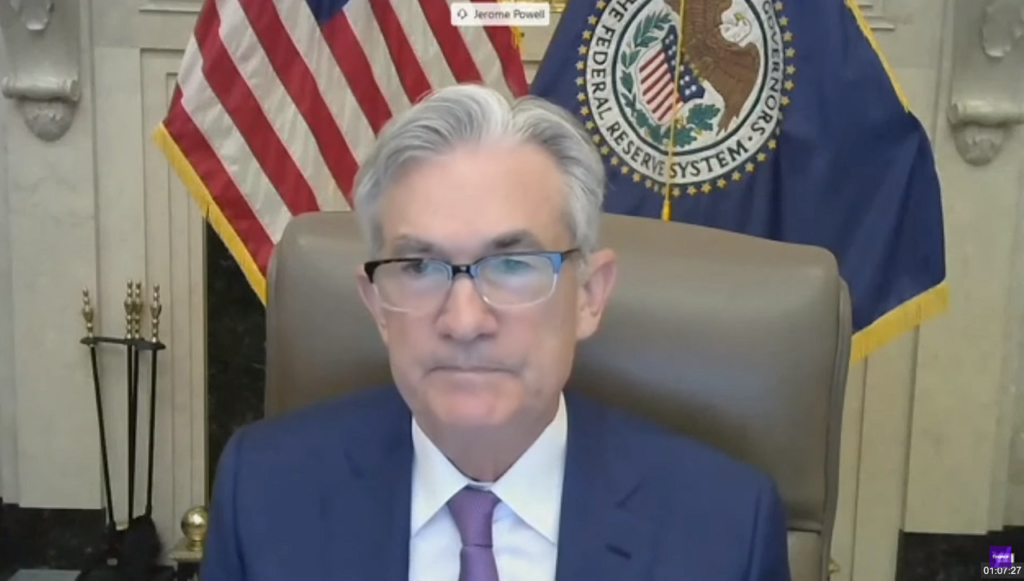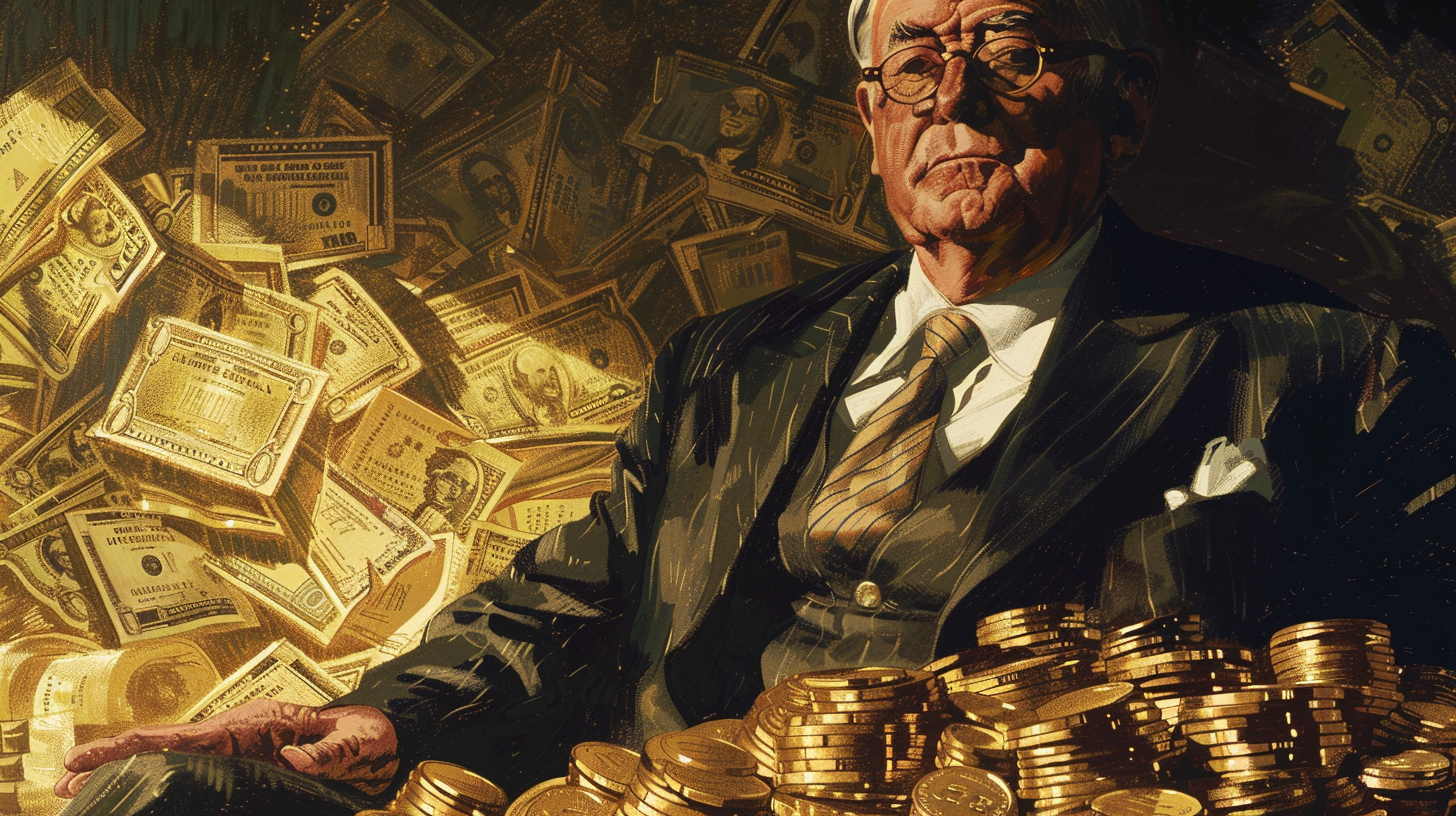Jerome Powell Says We Must Sacrifice – But for What?
Last week, Federal Reserve Chairman Jerome Powell called for a “society-wide” commitment to reaching full employment. As Peter Schiff put it, Powell basically handed the US government a blank check in order to achieve this “maximum employment goal.” We’re told we shouldn’t even worry about the massive deficit spending and additional debt this will incur. It’s all hands on deck and everybody needs to sacrifice. But what exactly does the Fed mean by “maximum employment?” What are we to sacrifice for?
Nobody knows. Not even the Fed.
As Robert Aro put it, “The Fed cannot reach this lofty goal, as they are unable to articulate exactly what the goal is.”
But we must sacrifice to get there!
![]()
The following article by Robert Aro was originally published by the Mises Institute. The author’s opinions are his own and do not necessarily reflect those of SchiffGold or Peter Schiff.
Keep the definition of “maximum employment,” as explained by the Federal Reserve, forever in mind; and remember it every time an economist or central planner uses it to justify their interventions in your life:
Maximum employment is the highest level of employment or lowest level of unemployment that the economy can sustain while maintaining a stable inflation rate.”
However, the Fed cannot reach this lofty goal, as they are unable to articulate exactly what the goal is. This is concerning. Maximum employment is one of the primary mandates of the Federal Reserve. However, they make no apologies. They explicitly state that the Fed —
seeks to judge how far the economy is from maximum employment, the Fed will assess a wide range of information on the labor market and not rely too much on any single estimate of a sustainable longer-run unemployment rate.”
Jerome Powell told the Economic Club of New York on Wednesday (Feb 10):
maximum employment will require more than supportive monetary policy … It will require a society-wide commitment, with contributions from across government and the private sector.”
For us to attain this goal, supposedly, we need more than “supportive monetary policy” (from the Fed). Therefore, it will require more threats of violence, theft, and coercion by the government. Although Powell did not explicitly state these methods, there is no other way to implement a national policy other than with a certain degree of force.
It seems odd to build a society around such vague ideas. But this is the society we live in. It comes as no surprise that Powell’s speech includes a subtitle called, “The Broad Responsibility for Achieving Maximum Employment.” He refers to the wake of World War II, 75 years ago:
Congress’s response was the Employment Act of 1946, which states that ‘it is the continuing policy and responsibility of the federal government to use all practicable means…to promote maximum employment.’ As later amended in the Humphrey-Hawkins Act, this provision formed the basis of the employment side of the Fed’s dual mandate.”
Alarmingly, he is suggesting the quest to attain maximum employment will require sacrifices not seen since World War II! Of course, anytime someone refers to the wartime era as an economic model, we must also consider that higher taxes, tariffs, subsidies, grants, loan programs and even make-work programs will soon follow.
It was Powell who first invoked wartime economics, and he even finished his speech with a national appeal, saying:
I am confident that with our collective efforts across the government and the private sector, our nation will make sustained progress toward our national goal of maximum employment.”
While on the subject, it would be a disservice to ignore the central planning schemes of other countries during that time, as dutifully noted by the BBC:
Hitler aimed for full employment and by 1939 there was virtually no official unemployment in Germany.”
Unfortunately, even the BBC succumbs to shining a positive light on collectivism:
Despite the loss of freedom, some aspects life improved in Germany for many ordinary people if they were prepared to conform in order to have a job and a wage.”
We already see Biden and Yellen working tirelessly on a $1.9 trillion stimulus plan, while the Fed is now aiming for an “inflation at the rate of over 2 percent over the long run.” The Fed continues to increase the money supply, adding over $100 billion of new money to the system with each passing month, while the question of “asset bubbles” continues to be on everyone’s radar except our central bank’s.
It becomes difficult to imagine just how many more sacrifices society must make for something scarcely articulated.





 In April, the U.S. economy added a disappointing 175,000 jobs, falling short of expectations and nudging unemployment up to 3.9% (see current trends here). This signals a slowing economy that might force the Federal Reserve to put the guard rails back on. Our guest commentator gives a deeper look at a worrisome trajectory: while part-time […]
In April, the U.S. economy added a disappointing 175,000 jobs, falling short of expectations and nudging unemployment up to 3.9% (see current trends here). This signals a slowing economy that might force the Federal Reserve to put the guard rails back on. Our guest commentator gives a deeper look at a worrisome trajectory: while part-time […] Beneath the sweet surface of our favorite treats lies a bitter reality: inflation has sent cocoa prices soaring to unprecedented heights. Once deemed the food of the gods and now a daily indulgence for millions, chocolate is facing a dramatic upheaval as wholesale cocoa prices have rocketed past $11,000 per ton. Our guest commentator explains […]
Beneath the sweet surface of our favorite treats lies a bitter reality: inflation has sent cocoa prices soaring to unprecedented heights. Once deemed the food of the gods and now a daily indulgence for millions, chocolate is facing a dramatic upheaval as wholesale cocoa prices have rocketed past $11,000 per ton. Our guest commentator explains […] As fiscal imbalances persist, driven by coercive measures and artificial currency creation, the middle class faces erosion and purchasing power dwindles. But as the world hurtles towards a potential reckoning, the lingering question remains: can this precarious balance last, or are we teetering on the brink of a cataclysmic economic shift?
As fiscal imbalances persist, driven by coercive measures and artificial currency creation, the middle class faces erosion and purchasing power dwindles. But as the world hurtles towards a potential reckoning, the lingering question remains: can this precarious balance last, or are we teetering on the brink of a cataclysmic economic shift? Beneath the veneer of headline job gains, the American economy teeters on the brink: native employment dwindles as part-time and immigrant jobs surge. Government hiring camouflages looming recession warnings. Inflation and political blunders worsen the crisis, fueling public outrage at the establishment’s mishandling of the economy.
Beneath the veneer of headline job gains, the American economy teeters on the brink: native employment dwindles as part-time and immigrant jobs surge. Government hiring camouflages looming recession warnings. Inflation and political blunders worsen the crisis, fueling public outrage at the establishment’s mishandling of the economy. On April 5 1933, Franklin D. Roosevelt abandoned the gold standard, wielding questionable legal power amidst America’s dire economic depression. His whimsical approach to monetary policy, including coin flips and lucky numbers, unleashed unprecedented inflation and price increases that have since amounted to nearly 2500%. Our guest commentator explores this tragic history and the legacy […]
On April 5 1933, Franklin D. Roosevelt abandoned the gold standard, wielding questionable legal power amidst America’s dire economic depression. His whimsical approach to monetary policy, including coin flips and lucky numbers, unleashed unprecedented inflation and price increases that have since amounted to nearly 2500%. Our guest commentator explores this tragic history and the legacy […]